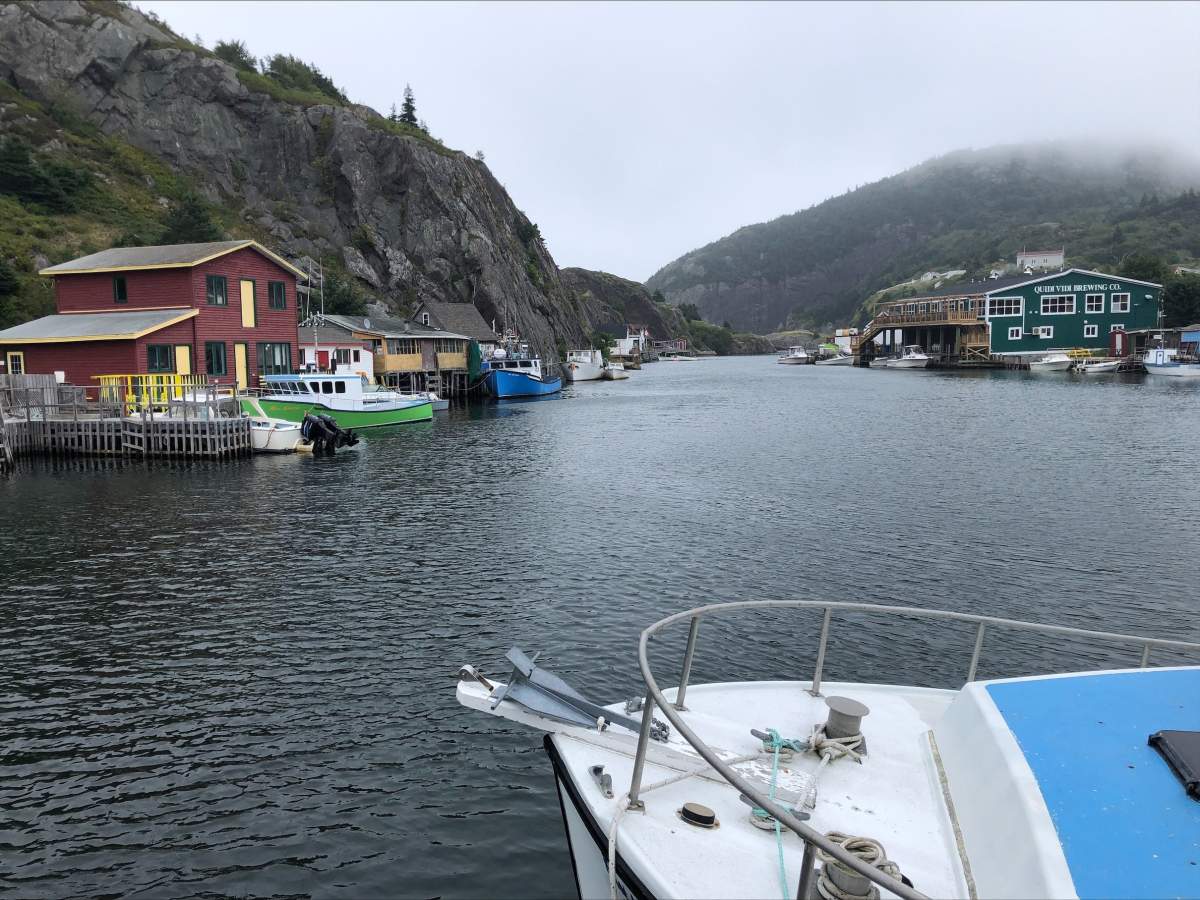There’s fear in the province of Newfoundland and Labrador about what’s coming next. A crippling financial crisis has Liberal Premier Andrew Furey considering his options, in a plan the provincial government is calling the “Big Reset.”

Among those most nervous about what’s coming are the province’s public servants.
There are more public servants in Newfoundland and Labrador, per capita than in any other province. Their union cautions the government against cutting services like health care.
“That’s a concern,” says Jerry Earle, president of the Newfoundland and Labrador Association of Public and Private Employees (NAPE), “in how we balance, how we deal with things. Not making big mistakes that will have a further negative consequence here in our province.”

In its long history of hardship, Newfoundland and Labrador has never faced a financial crisis like this one. At $14-billion, the province has the highest net debt-per capita in Canada.
It also has the highest unemployment rate, at almost 11.7 per cent, according to Statistics Canada, as of August.
A $5.2-billion federal aid package from the federal government, for cost overruns at the Muskrat Falls hydro project, announced in July, will prevent power rates from doubling. But, it won’t solve the crisis — something most Newfoundlanders seem to recognize.
“We need to get things back on track,” said a young real estate agent in downtown St. John’s, who preferred to remain anonymous. “And depending on the federal government to bail us out is not a reliable solution.”

Truly fixing the finances might mean making structural changes, something Premier Andrew Furey has yet to do. As Furey considers his options, financial analyst Larry Short says the province is in a state of apprehension.
“We’re all waiting on the edge, seeing things get worse … oil prices might get a bit better in the next couple of years, but at some point, we need someone to stand up and say ‘I know this is gonna hurt, but we’re gonna pull that tooth.”
For now, Furey is keeping people guessing. Through his office, he agreed to an interview with Global News, then, abruptly pulled out and there was no response to our request to re-schedule.

Get breaking National news
Even for a province that’s endured a series of economic collapses, including the cod moratorium, this crisis hits hard. It’s the result of a big increase in government spending when oil prices were high, followed by the crash in oil prices, then, the pandemic.
To successful business owners, like Todd Perrin, it’s a shame, considering his province is a warehouse of natural resources.
“Be it fisheries, be it oil and gas — whatever you feel about how we should be prosecuting the oil and gas industry — hydro, forestry, mining. It’s a huge warehouse of all the things the world wants and needs.”
But rather than realizing its’ full potential, the province is, once again, looking for ways to stay afloat financially.
After 11 years as an offshore worker, Trent Taylor has never been more grateful to have a job.
“I’m one of the fortunate ones, actually fortunate to keep the job through all this. So I count my blessings, I guess, considering how the industry is.”
Taylor is a control systems operator on the Terra Nova floating production, storage and offloading vessel, (FPSO) that’s helped produce 425-million barrels of oil, from the Terra Nova field. When the pandemic undermined an oil market that was already shaky, hundreds of jobs on the ship were lost.
Amanda Young was laid off from her job as a cook on the FPSO, last October.
“I’m in a hard spot,” said Young. She says she’s been living on savings and small loans, which are now depleted.
“You’ve got to pay a mortgage and your bills and you still can’t fit a car and you still can’t get groceries. And so, I mean, this is what we’re looking at right now.”
The shift to a green economy, away from fossil fuels, puts the future of the province’s offshore oil and gas industry in doubt, along with thousands of reliable paycheques.
Natural Resources Minister, Seamus O’Regan, who’s running for re-election in the riding of St. John’s East-Mount Pearl, says the answer is re-training workers.
“We need them. They are the ones who will lower emissions. It is complex stuff. This isn’t easy.”
O’Regan says re-training is a big part of a $320-million aid package, already given to the industry. But, one year later, how that money trickles down to workers is still unclear, according to Young.
“I haven’t heard anything on what we’re switching to, and what training is available for us.”

Young and Taylor both suggest they won’t vote for any party that aggressively promotes a green agenda.
“It definitely influences where I’m going and where my decision is going to be, come election time,” says Taylor.
If other offshore workers walk away from the Liberals, it could complicate the party’s efforts to keep a grip on Atlantic Canada in the Sept. 20 federal election.











Comments
Want to discuss? Please read our Commenting Policy first.